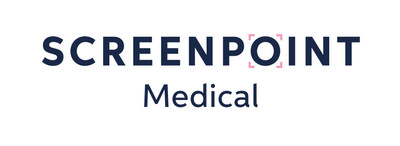The Cancer Registry of Norway is one of the oldest and most respected organisations of its kind in the world. It collects data and produces statistics of the cancer prevalence in Norway, has the administrative responsibility for the public screening programme in Norway and has an extensive research activity.
|
OSLO, Norway, March 30, 2022 /PRNewswire/ -- The Cancer Registry of Norway is one of the oldest and most respected organisations of its kind in the world. It collects data and produces statistics of the cancer prevalence in Norway, has the administrative responsibility for the public screening programme in Norway and has an extensive research activity.  In a recent study, the Registry used over 120,000 screening examinations from a population-based program to assess potential of using AI in screening and came up with some surprising answers. While Artificial intelligence (AI) has shown promising results for cancer detection in mammographic screening, solid evidence based on complete follow up of participants and accurate characterization of cancers remains sparse. To fill this gap, the Registry compared Transpara's performance with routine independent double reading with consensus as usually performed in a population-based screening program. Further, they explored histopathological characteristics of tumours with different Transpara scores. The study, published in Radiology, looked at 122,969 screening examinations from 47,877 women performed at four facilities of BreastScreen Norway. Results were impressive: a total of 86.8% screen-detected and 44.9% of interval cancers received a Transpara score of 10, the category with the highest risk for breast cancer. By extending the highest risk group to 20% of the population, 93% of the screen-detected and 63% of the interval cancers were selected. The leading author of the study, Professor Solveig Hofvind, is head of Breast Screen Norway and leading the section Breast Cancer Screening at the Cancer Registry. She comments on the study, "We are very excited, especially about the excellent performance of Transpara on interval cancers and look forward to testing the AI system in real screening settings." According to ScreenPoint Medical's Chief Scientific Officer and founder Prof Nico Karssemeijer, "This comprehensive study shows how AI and a human reader can be a powerful combination. A key point is that Transpara alone had a similar sensitivity as a single radiologist, at the same specificity, but it detected other cancers than the human readers." Dr Rachel Brem, ScreenPoint medical supervisory board member and world-renowned breast radiologist, summarises, "This latest study, the largest Breast AI study to date, is a game changing finding. This study confirms that ScreenPoint Medical algorithms are both demographically robust and can reliably find cancers earlier. This is outstanding and the widespread introduction of Transpara Artificial Intelligence will undoubtedly benefit women worldwide." For more information, please visit: www.screenpoint-medical.com
SOURCE ScreenPoint Medical |




